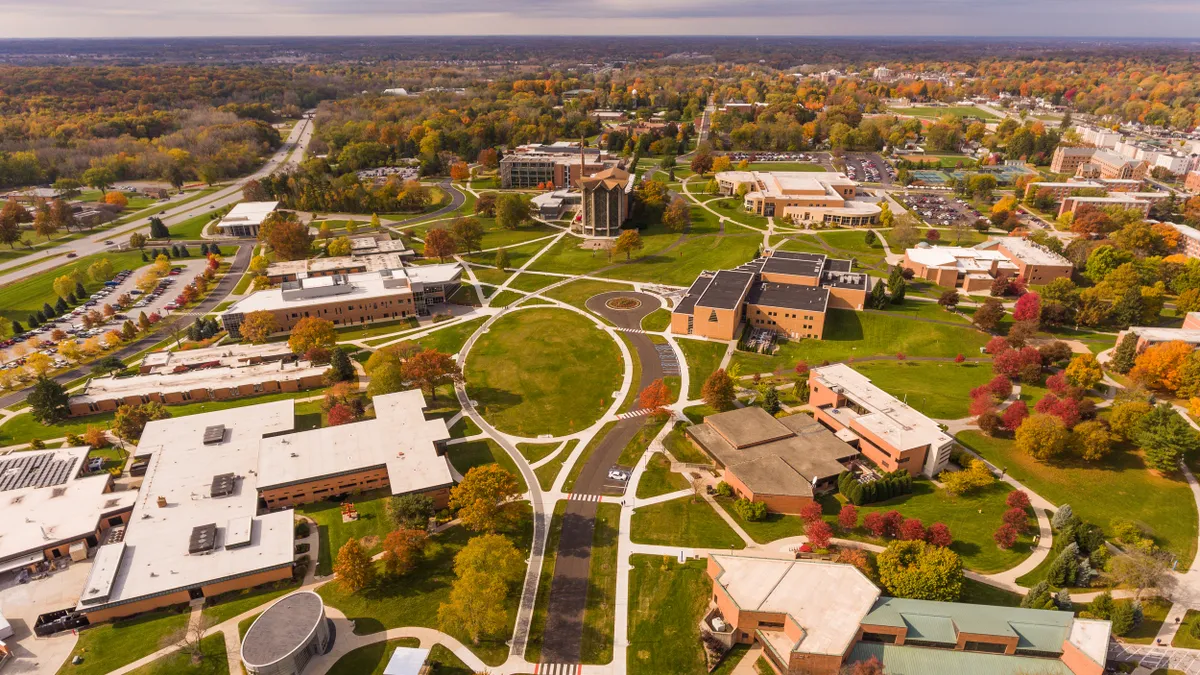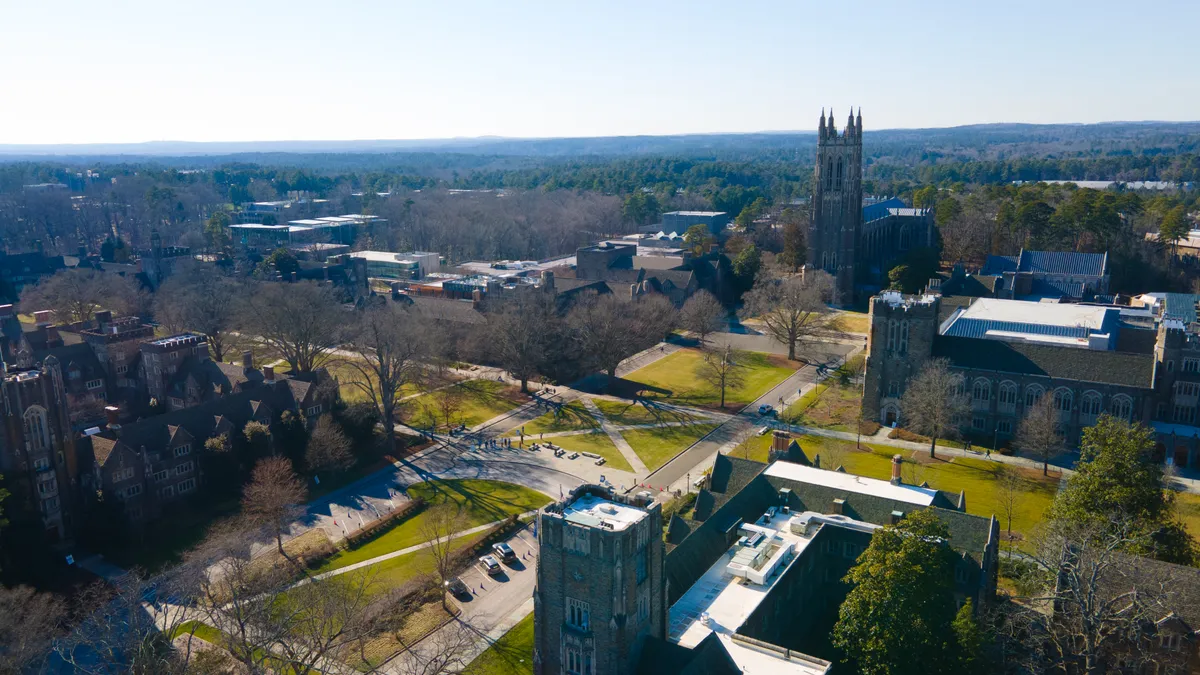Dive Brief:
- Valparaiso University, a Lutheran institution in Indiana, will eliminate over two dozen academic programs following an operational review intended to rightsize its offerings.
- The affected programs have stopped enrolling new students and include majors, minors and certificate offerings. Current students will be allowed to complete their studies through spring 2027.
- Valparaiso President José Padilla said in a Monday message to the university that around 2% of the campus population will be affected. Faculty cuts will follow, Padilla said, but he did not specify how many.
Dive Insight:
Valparaiso's provost, Eric Johnson, announced in March that the university was weighing academic program cuts to enact before the fall 2024 semester. He said at the time that Valparaiso offered too many academic options relative to its student body and faculty size.
Johnson also cited the university's declining enrollment. In fall 2022, the private nonprofit enrolled 2,958 students, according to federal data. That's down 27.5% from 4,078 a decade earlier.
Monday's final cuts include programs mentioned by Johnson in March, as well as those flagged for discontinuance due to low enrollment before the provost made his list public, a university spokesperson said in an email Tuesday.
Valparaiso allowed academic departments to contest proposed eliminations by pitching ways to decrease costs and increase enrollment.
Following this process, the university elected to save three majors, three minors and one certificate program from the chopping block. Those programs — which include astronomy, Spanish and public health — will be reassessed in three years.
Valparaiso had also considered eliminating its theology major and minor, but the religiously affiliated institution elected to redevelop the program instead.
"Theology will remain a mandatory component for all students through our general education curriculum, as it is an integral part of our University’s educational framework and identity," Padilla said in the announcement.
Theology faculty, the provost's office and the university's Calling and Spiritual Life division will work together to create a new major, Padilla said. The changes will not alter degree requirements for current theology students.
The university also plans to revise the religion courses that all students must take.
Faculty tried to save seven other undergraduate majors and three minors — including offerings in philosophy, statistics and German — as well as two graduate programs. But Valparaiso said it ultimately decided to cut those offerings after weighing the department proposals along with enrollment and market data.
"This work was not solely a cost cutting initiative," Padilla said. "Through regular and careful review of program offerings, we strive to evolve continually to meet the expectations of our students and the demands of the market."









